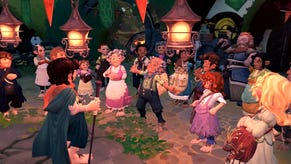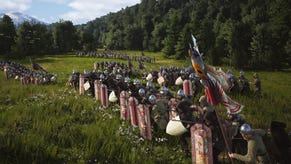Digital overtaking retail for Valve
Three months until Steam makes more money.
Speaking to a select group of journalists about Steam and the future of PC gaming today, Valve president Gabe Newell revealed that the company will soon be making more money from digital distribution of its games than traditional boxed sales.
"We see sub ten per cent growth rates in our core, packaged retail business," Newell said. "Right now we're seeing close to 200 per cent growth in the alternative ways of connecting with customers.
"It will actually pass over in the next three months, how much of our business is coming from retail versus how much is coming from other channels," he said. He noted that Valve had invested in internet cafés as well as its Steam platform.
Asked later how Steam could match the reassurance of possessing a physical copy of a game, Newell countered, "At this point, people have had Steam long enough that their experience is that Steam is more reliable than physical media."
He pointed out that easy access to all Steam games from any PC - soon to be backed up with game save support via Steam Cloud - made digital copies of games more permanent, not less.
"This is just a more reliable and dependable situation. I mean, I bought Heroes of Might and Magic four different times now, I swear."
He also revealed that Valve was considering distributing non-games media or software through Steam, although this was a long-term plan only.
"It's something that we're looking at," he said. "Right now we're focused on games... but I think as we get more mature, there's no reason that we wouldn't." He mentioned the possibility of distributing the Firefox browser, with Steam Cloud backing up personal bookmarks and settings on any machine.
In addition to promoting Steam, the conference at Valve's Seattle HQ was aimed at countering recent claims that the PC games market was dying. Newell and his colleagues argued that alternative business models like Steam, MMOs and casual games platforms - as well as a truly global audience - made the PC the centre of growth and innovation in the games market.
We'll have a more detailed report on how Valve's best minds see the future of PC gaming soon.







